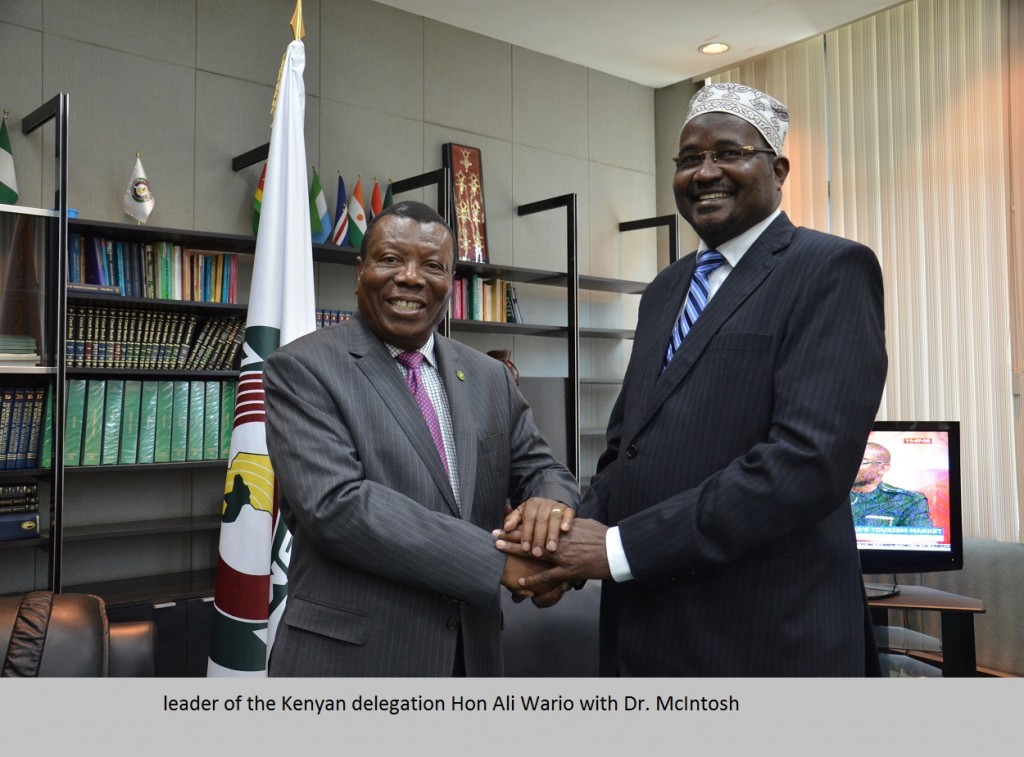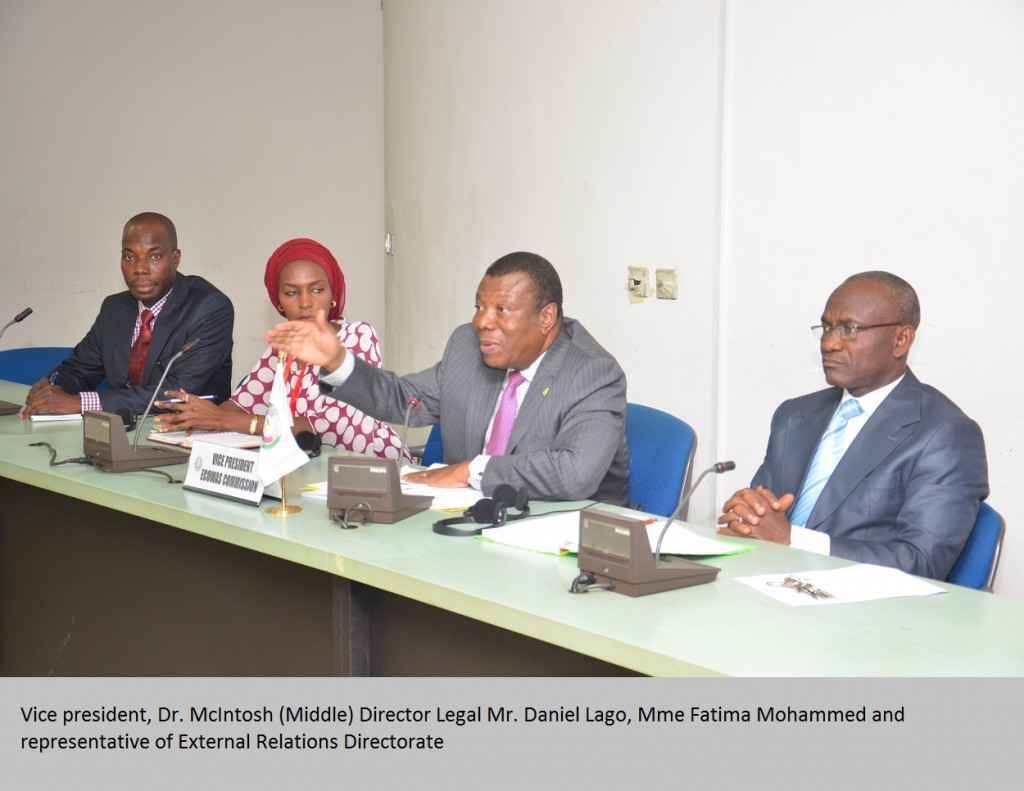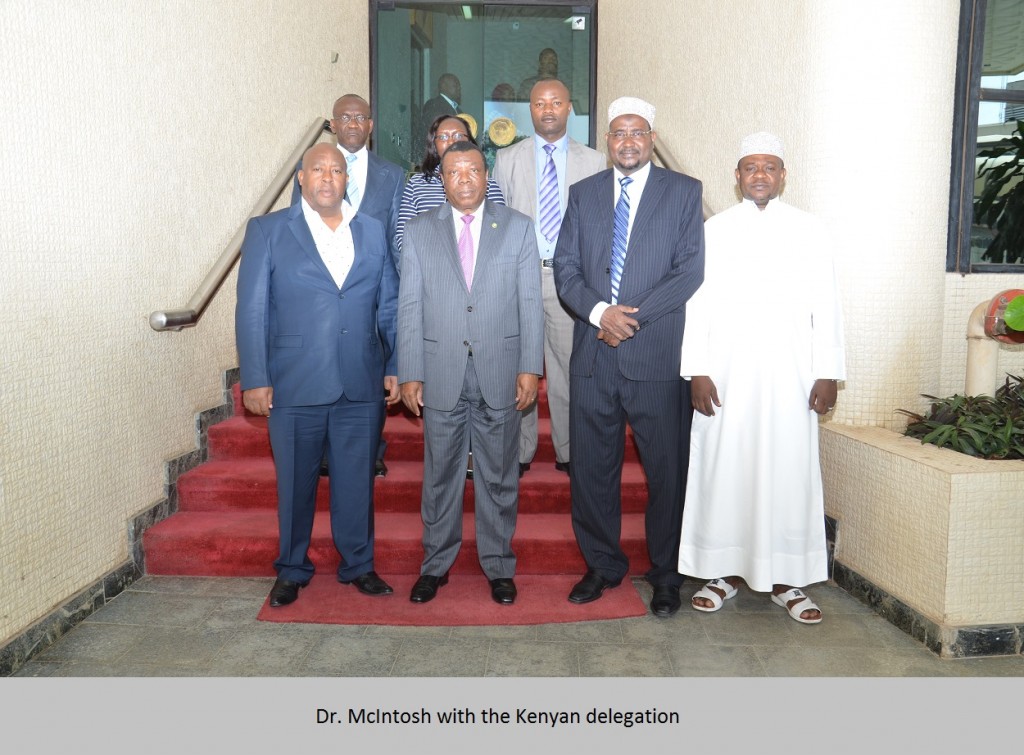 Members of the Kenyan Parliament are seeking the cooperation of ECOWAS with a view to strengthening its working relationship with the East African Community (EAC) and learn from the experience of ECOWAS in dealing with trans-national issues that impact on economic and political development. Members of the Kenyan Parliament are seeking the cooperation of ECOWAS with a view to strengthening its working relationship with the East African Community (EAC) and learn from the experience of ECOWAS in dealing with trans-national issues that impact on economic and political development.
Conferring with the Vice President of the ECOWAS Commission Dr. Toga Gayewea McIntosh on the 11th of December 2015, the leader of a seven-man delegation Hon Ali Wario stated that the interactions that his team had with senior management officials both at the ECOWAS Commission and Parliament will prove to be very useful in tackling the myriad of issues that are common to countries and citizens of Eastern Africa.
Hon Ali who is also a member of his country’s regional integration committee, and members of the Kenya delegation took turns to express concerns on some of the issues which included continental federation, common custom union and currency, early warning system, cross border conflicts, extremism and terrorism as well as the management of peace and security. Kenya’s economy is the biggest in East Africa.
Having compared notes from earlier meetings, the delegation also wanted knowledge to be shared on how ECOWAS has been able to deal with issues of interventions, common market, Free Movement as well as the fears expressed by various communities struggling to come to terms with the speed, scope and reality of integration. 
Responding to the issues of interest raised by the delegation, Vice President McIntosh who spoke on behalf of the President of the Commission traced the history of ECOWAS and the transformation it has had to undergo in order to be able to respond to the changing times necessitated by certain disruptive political occurrences which was impeding economic integration being the original vision of the Community.
Vice President McIntosh who was flanked by the ECOWAS Legal Director, Mr. Daniel Lago, Mme Fatima Mohammed Mohammed and a representative of the External Relations Directorate, also cited the establishment of the ECOWAS Bank for Investment and Development (EBID), the existence of mechanisms such as the Mediation and Security Council, Community Levy, Joint border posts, the ECOWAS brown card scheme, as well as the Convention on Small Arms and Light Weapons among others to free up resources needed for development, galvanize intra-regional trade, bring about the balance of political and economic efforts necessary for steadying the economies of the region.
Speaking further about other instruments employed to create an enabling environment and bring about co-prosperity in the West African region, Vice President McIntosh said the zero tolerance for the usurpation of power by unconstitutional means has helped a great deal in bringing about relative stability to the region. According to him, this ECOWAS initiative, which is being driven by the Protocol, on Democracy and Good Governance is supported by the African Union (AU) as well as the United Nations.
This he said, is being boosted by the fact that the ECOWAS Early Warning System assembles political signals on a daily basis and gets corresponding backing from the AU Commission “which also tracks and feeds us back. We are now doing environmental scanning and soon every (ECOWAS member) country will have its own Early Warning office. We already have Small Arms offices in Member States, which is part of the reasons why no government can move weapons around in West Africa without the approval of ECOWAS” Dr. McIntosh added.
Generally, Vice President McIntosh availed the Kenyan delegation of the gains of the ECOWAS regional solidarity, which is nurturing the greater entrenchment of democratic culture, enhanced efficiency in conflicts and crises prevention and resolution as well as the accelerated implementation of sectoral programmes for wealth creation.
The results of these, he said are being witnessed in the commencement in 2015, of the implementation of the Common External Tariff, regional infrastructure development programme, the creation of an efficient regional response against challenges such as the Ebola virus disease and terrorism as well as the adoption of a single biometric identity card.
Also on the delegation from Kenya were Honourables Florence Mutua, Badi Twalib and Joseph Kahansara the research officer, Regional Integration Committee Sharon Cherono, Secretary to the Committee on Regional Integration Nicodemus Maluki as well as the representative of the Kenyan High Commission in Abuja Peter Kariuki |






